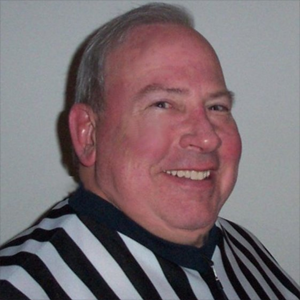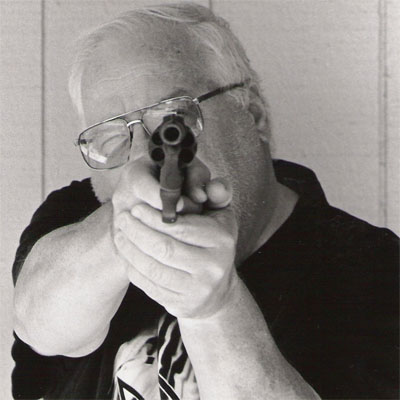
Rndballref
20 Years Experience
Chicago, IL
Male, 60
For twenty years I officiated high school, AAU and park district basketball games, retiring recently. For a few officiating is the focus of their occupation, while for most working as an umpire or basketball referee is an avocation. I started ref'ing to earn beer money during college, but it became a great way to stay connected to the best sports game in the universe. As a spinoff, I wrote a sports-thriller novel loosely based on my referee experiences titled, Advantage Disadvantage
The correct call for this picture is "held ball". Or people call it "jump ball". A held ball is when two opponents are holding the ball together or pushing the ball simultaneously. No foul,call it a jump ball.
Completely unacceptable. If I was the coach I would lodge my complaint with the referees as soon as it started getting rough. If they continued to fail to enforce the legitimate rules of the game I would be compelled to act. I believe that a coach’s first responsibility is the safety of the players, and if I felt that the team’s safety was at risk I would pull my players off the floor and forfeit the match. Then I would write a commentary along with game tape and get the referees bounced (and decertified) for 1) not enforcing the rules of the game and 2) allowing the environment to threaten the safety of the players. It is hard to believe that state certified officials would let this happen - it is also strange to hear about 3 man crews working middle school games. In the conferences I worked, only high school varsity games used 3 ref’s.
The top and bottom are in bounds, but on a rectangular backboard if the ball goes over the top even without touching, it is out of bounds.
You should spend time in 2 places: 1) the library which will have many books about fundamental skill development, and 2) a park where you can hone these skills. If you lack basic skills how are you a starter?
Correctional Officer
 Were there a lot of suicides in your prison, and what's the most common way prisoners do it?
Were there a lot of suicides in your prison, and what's the most common way prisoners do it?
Fashion Model
 How much do promo girls at convention booths get paid?
How much do promo girls at convention booths get paid?
Casino Marketer
 What would be some less obvious ways someone could save money on a Vegas trip?
What would be some less obvious ways someone could save money on a Vegas trip?
Yes the end line official designates the spot to start in.
A player chest bumped my partner and nearly knocked him over. On the way down, he threw the player out.
The ball achieves front court status NOT on the throw in, but when the offensive team obtains ball control in their front court. In your example, the deflection (unless deliberate) would not constitute ball control, so no backcourt violation.
-OR-
 Login with Facebook
Login with Facebook (max 20 characters - letters, numbers, and underscores only. Note that your username is private, and you have the option to choose an alias when asking questions or hosting a Q&A.)
(A valid e-mail address is required. Your e-mail will not be shared with anyone.)
(min 5 characters)
By checking this box, you acknowledge that you have read and agree to Jobstr.com’s Terms and Privacy Policy.
-OR-
 Register with Facebook
Register with Facebook(Don't worry: you'll be able to choose an alias when asking questions or hosting a Q&A.)